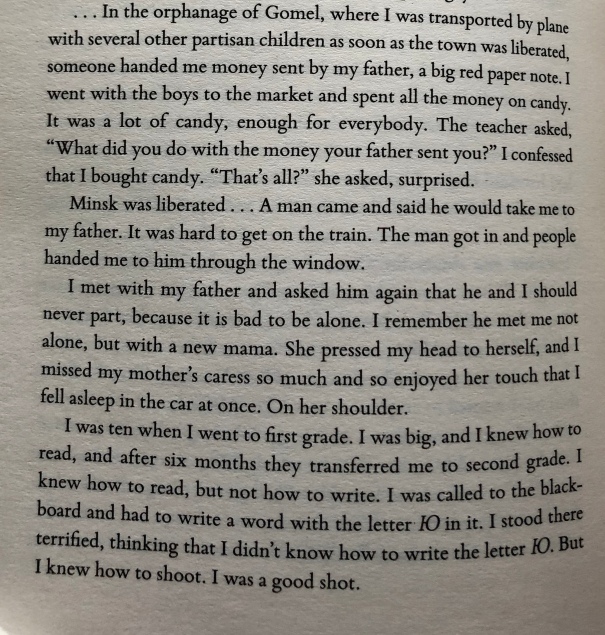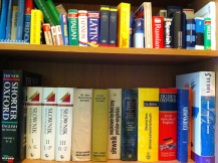
Translation often comes with a delay, sometimes of decades. Many of these people’s stories are only being told in English after their death. Before that, it took decades for their voices to be heard in their native language.
Last Witnesses: Unchildlike Stories was first published in Moscow in 1985, forty years after the end of the Second World War. But it was only published in English in 2019, eighty years after that war began.
We have the translators, Richard Pevear and Larissa Volokhonsky, and the publisher, Penguin Classics, to thank for that. But it was Svetlana Alexievich’s Nobel Prize for Literature in 2015 that finally brought more of the voices she recorded into English (and onto our screens, with the success of Chernobyl). Second-Hand Time gathered the voices of adults across the Soviet Union, and The Unwomanly Face of War listened to women soldiers, but in this book, it’s the children’s turn.
Anya Grubina was twelve when war broke out. She lived through the siege of Leningrad, so the first thing she thinks when she sees a cat is: lunch. And breakfast, and dinner. For a month…

Volodia Korshuk was seven when war broke out. He lived through the war in the woods, with the partisans. By the end of it, he knew how to wield a gun, but not a pencil.

Valia Matiushkova was five when the war broke out. She might not have lived at all, since she was so young. Her story was one of the ones that affected me – and affected Alexievich, too – the most. Until I read this, I did not know that the Nazi doctors did this to these children.

November is the month of remembrance, not least of the end of the “war to end all wars” that was then called the Great War – the First World War and all the other wars that followed. It is still celebrated with pomp in the country I was born in. The end of the Great Patriotic War is celebrated with even greater pomp in Russia, which may have made these stories easier to publish than some of Alexievich’s other work. But you cannot read this book with pomp. It is a humbling and damning indictment of the horrors of war, seen through the eyes of people for whom this was how the world worked, because this is the world they grew up in.





















[…] and on her visit to Moscow, Thatcher wolfed down the blinis. But the bits I loved were like Alexievich. That polyphony of ordinary people narrating their lives, together telling the big history. The […]